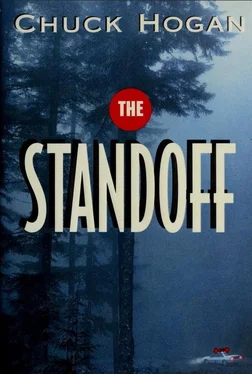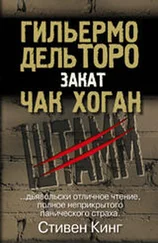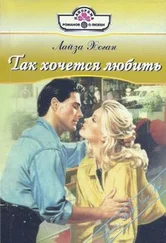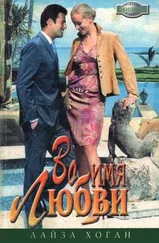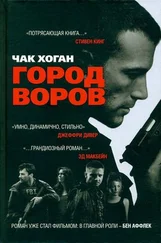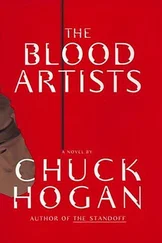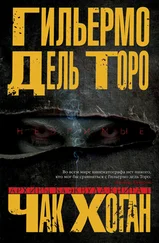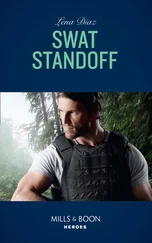Perkins was waiting for Banish outside the sound truck. His ear wire was out and hanging down to his lapel and he was smoking a cigarette. Banish had not smelled tobacco on him before. A roar started up again before they could speak, a UH-1 National Guard helicopter lifting off into the early evening sky and circling away. Dirt swirled up and the clearing shook. Banish would return to his office to find half the papers shaken off his desk again.
Perkins released a sighed stream of smoke out one side of his mouth. “The Newlands check out,” he said. “I took them backward and forward through it, the same exact story. Kept in a back room by the rear porch, given bread and fruit and water rations twice daily, but didn’t know what was going on inside. Ables purposefully kept them isolated. They said they could hear music playing and the voice on the loudspeaker, but they didn’t know what the reaction was. They heard the infant crying every once in a while, but Mrs. Mellis brought them their food and she never said anything.”
“So what happened?”
“They said it came out of nowhere. Ables appeared with Charles Mellis and told all three to get their things and go.”
“Why not Mellis’s wife?”
“Unknown. The Newlands say they don’t know much about Mellis, except that he was very tight with Ables. But since the shootout, they’ve been in back of the cabin and everyone else was in the front.”
Banish nodded. “What does Mellis say?”
Perkins took another deep drag, blew it out. “He admitted right away to being involved in the shootout. I Miranda’d him but he kept right on talking. Said Ables is losing control up there. Said he’s not thinking clearly, he’s talking to himself, pacing around the cabin, blah, blah, blah. But then a funny thing happened. Mellis figured out that I wasn’t Watson and he clammed up. He says he has something important to say, but only to the man in charge.”
Banish was shaking his head.
Perkins said, “All he said was that people will get hurt. That’s all he would tell me. Ask me, do I believe him? I don’t know. My read is that he’s serious, at least about refusing to talk to anyone else. He does seem anxious to spill, though.”
Banish said, “Out of the question.” The negotiator never met with the hostages.
“We need a break here,” said Perkins. “The men, everybody, getting very anxious. Maybe you should at least look at the videotape.”
“How does he seem?” Banish said, avoiding.
Perkins twisted apart his shirt collar. “Truthfully, I think Fagin scared him a little up there. But you get past that and he’s overly helpful. Like someone with a lot to get off his chest. Like the guy who walks in off the street and says he wants to show you where the bodies are buried.”
Banish was frowning and shaking his head again when in the distance they heard the pop-pop of gunfire. Both men looked quickly up toward the mountaintop, which could not be seen from where they were standing. Then more scattered reports.
Perkins flicked away his cigarette and fumbled the wire back into his ear. Banish worked his radio. “Fagin,” Banish said.
Fagin’s voice came back loud and full of adrenaline. “Shooting out the lights.”
Banish heard a burst of reports through the radio and the sound of glass breaking, then Fagin’s voice again over it. “Fucking crap-shoot, from holes in the cabin walls.”
Banish nodded, pleased. “Good,” he told him. “Put that down as their first communication. Hold your fire and get everybody down low.”
A pause. “I didn’t get that last part.”
“You got it all right. Hold your fire and get your men down low. There are still children in there. Pull back when it stops, then get those lights repaired ASAP.”
More gunfire and shattering and ricochets through the radio. “Motherfuckers,” spat Fagin, muffled.
Banish switched off. Perkins’s eyes were attentive and he was standing up straighter in his sagging clothes. “It’s working,” he said.
Banish showed him no reaction. “Get to the sound truck,” he said. “Have him start ringing the telephone again.”
Perkins nodded. “You think Ables is losing it?”
Another distant smattering of reports. Banish looked up at the mountain. “No,” he said. “I don’t think so.”
Brian pulled up the Jeep before the tents and hopped out. He could tell just by the look on Mr. and Mrs. Mellis’s faces that the sheer magnitude of the staging area the tents, the vehicles, the equipment — astounded them. It made him see it with fresh eyes again, and he got a bolt of renewed enthusiasm. The FBI in Huddleston. And him involved in the process, dealing with FBI agents, knowing them and being known by name.
He helped Mrs. Mellis out of the Jeep and walked them both toward the far-right tent nearest the chain fence and the long row of service vehicles. They slowed halfway, looking up and squinting as a spotlight swiped the clearing and a huge helicopter roared overhead.
Mr. Mellis was wiping his flat hands on the legs of his trousers. It had been a long wait for them. Brian explained that their son was still under arrest, but that he had asked to see them and the federal authorities had OK’d it. The couple kept nodding their heads, too grateful to quibble. At this point they would take whatever they could get.
Three men emerged from the tent, two tall marshals with Charles Mellis between them. He was a big spud, with a bushy beard and oversized boots, and shackles on his wrists and ankles. Brian had the parents stay where they were, then pulled off to the side himself. The marshals walked their prisoner about halfway, then stopped and undid both sets of cuffs, which Brian thought was a really fine gesture.
Charles Mellis jogged the last few steps into his mother’s arms. He towered over her. Her arms went around his hips but her hands didn’t touch behind. She was crying and saying his name over and over again, “Charlie, Charlie,” and his father, a good-sized guy himself, was smiling and patting his son on the back, and even, it seemed, wiping his eyes.
His mother pulled back to get a better look up at her son, probably to make sure he was all right, and then he was shaking his father’s hand and hugging his mother again, holding her head against one of his suspender buckles. Just standing there witnessing it, Brian felt a warm buzz of satisfaction that he had admittedly done nothing to earn.
He was backing away farther, trying to let the family have even more of a private moment, when he saw two men watching from the shadow of a large truck off to the side. Brian instantly recognized the posture of the taller one with his arms crossed as belonging to Agent Banish, and was surprised that he was there watching, even more surprised than he had been when the order came down to the barricade originally to let Mr. and Mrs. Mellis through. Brian moved toward the two men through the shadows under the high lights. He saw that the second expressionless man was Agent Perkins.
Brian was probably too caught up in the moment, but he felt as though he had to thank Agent Banish for doing the right thing. He said to him, “It’s a good thing you did here.”
Agent Banish showed no reaction. He did not respond or even let on that he had heard. Instead, he said something to Agent Perkins that did not involve Brian. He said, “I’ll see him” — almost with an air of regret. Then he turned and walked away.
Banish had the two marshals wait outside, then entered his former trailer behind Perkins. Charles Mellis was seated without restraints behind the small wooden table, drumming his thick fingers on its chipped surface. He was big and eager-looking, like some dogs, and the tangled black-red beard hanging from his sideburns and crowding his mouth sprang like a disguise from his pale, freckled baby-face.
Читать дальше
